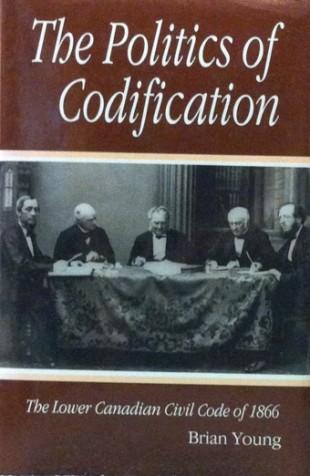by Brian Young, Professor Emeritus, Department of History and Classical Studies, McGill University. Published with McGill Queen’s University Press, 1994.
Brian Young interprets codification as part of a larger process that included the collapse of the Lower Canadian rebellions, the decline of seigneurialism, the expansion of bourgeois democracy in central Canada, professionalization of the bar, and formation of the institutional state. Central to codification was a profound ideological shift in Lower Canadian society that gave priority to exchange and individual property rights. Young examines the evolution of codification from its nationalist origins in the 1820s and 1830s into a Civil Code that was integral to Confederation and became a flagship of bilingualism in Quebec. The formation of the commission, the work of the codifiers, and the reaction of the anglophone minority and the Roman Catholic hierarchy are considered, as is the Code’s meticulous blending of a conservative social vision with the principles of freedom of property.

